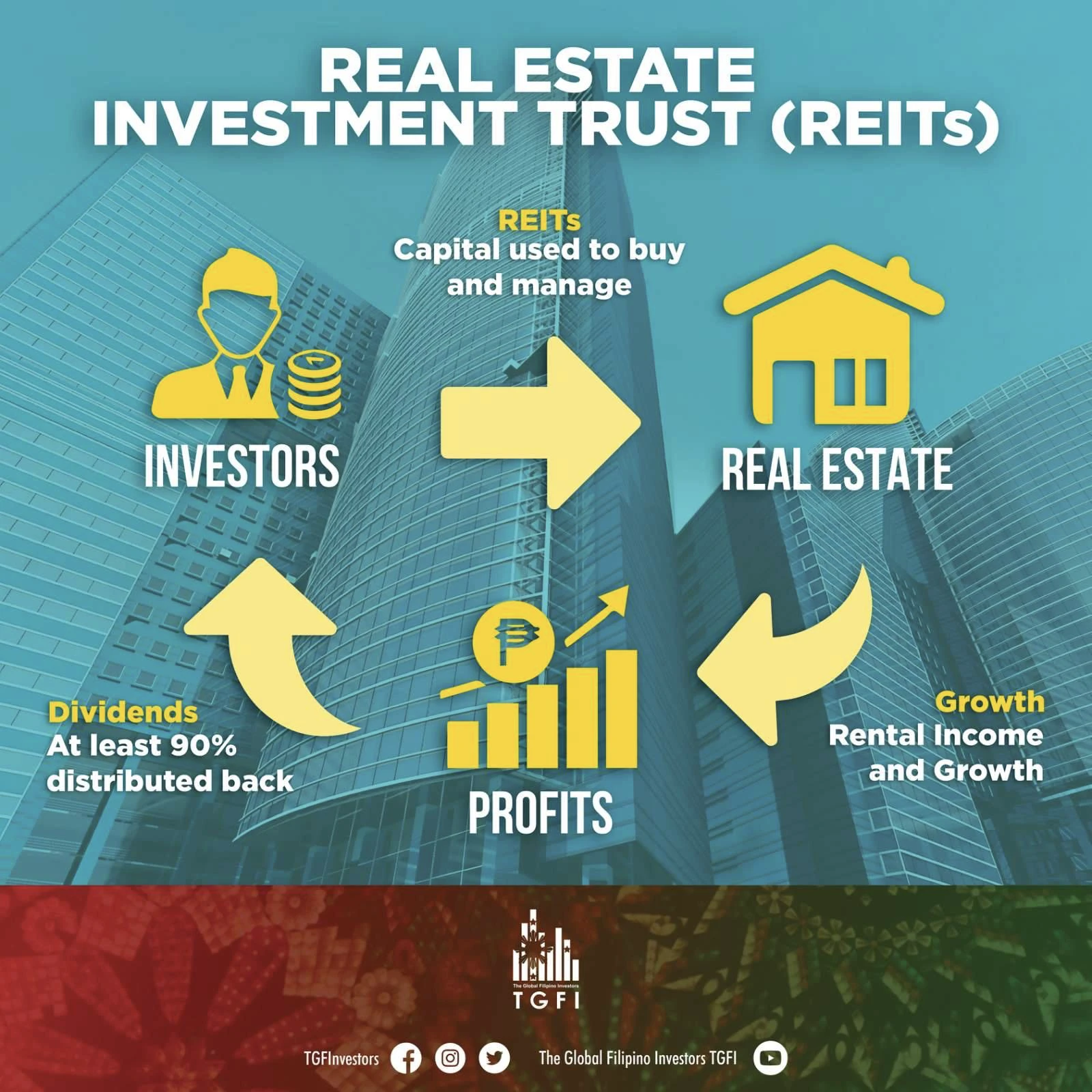Rental Properties vs. REITs vs. Real Estate Crowdfunding: Which Investment Option Is the Best?
Real estate has long been regarded as a highly popular and attractive investment option, enticing both seasoned investors and novices alike. According to data from the National Council of Real Estate Investment Fiduciaries (NCREIF), the total returns on institutional real estate investments in the United States averaged an impressive 10.83% annually over the past 20 years. This track record of consistent returns has fueled the appeal of real estate among investors seeking stable income streams and potential capital appreciation.

In this article, we will explore the three main investment options that individuals can consider when delving into the realm of real estate investing: Rental Properties, Real Estate Investment Trusts (REITs), and Real Estate Crowdfunding. Each option offers distinct advantages and challenges, catering to different investor preferences and financial goals. Rental properties allow direct ownership and hands-on management, potentially providing significant control over investments. On the other hand, REITs offer the opportunity to invest in real estate through publicly traded shares, providing diversification and professional management. Real estate crowdfunding, a relatively newer option, allows investors to participate in real estate projects with lower capital requirements and pooled funds.
The primary purpose of this article is to comprehensively compare and evaluate each investment option, aiming to equip readers with the necessary knowledge to make informed and calculated decisions. By analyzing the strengths, weaknesses, and risk profiles of rental properties, REITs, and real estate crowdfunding, investors will gain valuable insights into which option aligns best with their risk tolerance, financial capabilities, and long-term investment objectives. With real-world data and examples, we hope to guide readers towards selecting the most suitable investment avenue that will lead them closer to their financial aspirations.
Rental Properties
Rental properties are residential or commercial real estate assets purchased with the intention of generating rental income and potential long-term appreciation. According to a study conducted by the Urban Institute, rental income accounts for a significant portion of total returns from real estate investments, with an average of 6.1% annually over a 15-year period. As an investment strategy, rental properties offer investors the opportunity to become landlords and lease out their properties to tenants, thus creating a consistent stream of passive income.
One of the primary advantages of rental properties is their potential for long-term appreciation. The U.S. Census Bureau reported that from 2010 to 2020, the median home sales price in the United States increased by nearly 63%. (Median Home Sales Price in the United States from 2000 to 2022) This rise in property values can lead to significant capital gains over time for property owners. Additionally, rental properties provide investors with a passive income stream through rental cash flow, which can help offset mortgage payments and other property-related expenses. Moreover, being a landlord grants investors control and flexibility in property management, allowing them to make strategic decisions to enhance property value and attract quality tenants.
While rental properties offer various advantages, they also come with certain challenges. The initial investment and financing requirements can be substantial, requiring investors to have adequate capital or secure financing through mortgages or loans. As landlords, investors take on various responsibilities, including property maintenance, tenant screening, and addressing tenant concerns, which may demand significant time and effort. Furthermore, market risks and property vacancies can affect rental income, making it crucial for investors to be prepared for periods of potential revenue fluctuations and to have contingency plans to manage vacancies effectively.
REITs (Real Estate Investment Trusts)
REITs, or Real Estate Investment Trusts, are publicly traded companies that own, operate, or finance income-generating real estate properties. They offer investors an opportunity to invest in a diversified portfolio of real estate assets without directly owning and managing individual properties. According to data from the National Association of Real Estate Investment Trusts (Nareit), the total returns of the FTSE Nareit All Equity REITs Index averaged an impressive 9.94% annually over a 20-year period. REITs are required by law to distribute at least 90% of their taxable income to shareholders in the form of dividends, making them attractive to income-seeking investors.
Diversification through pooled investments is one of the key advantages of REITs. By investing in a single REIT, investors gain exposure to a wide range of properties across different sectors, such as residential, commercial, industrial, and healthcare. This diversification can help reduce risks associated with holding individual properties and create a well-rounded real estate investment portfolio. REITs also benefit from professional management and expertise, as they are operated by experienced teams with deep knowledge of the real estate industry. This hands-on management can lead to optimal property selection, efficient operations, and potentially higher returns for investors. Moreover, REITs offer liquidity and ease of buying and selling, as their shares are publicly traded on stock exchanges, allowing investors to enter or exit their positions with relative ease.
Despite the advantages, REIT investments come with certain challenges. One challenge is the impact of market volatility on share prices. REIT shares can be influenced by broader market movements, economic conditions, and interest rate changes, which may lead to fluctuations in their valuations. Additionally, investing in REITs means entrusting property selection and management decisions to the REIT's management team, leaving investors with limited control over individual property choices. Moreover, there may be fees and expenses associated with REIT investments, including management fees and operational costs, which can affect overall returns and should be carefully considered by potential investors.

Real Estate Crowdfunding
Real estate crowdfunding is a modern investment concept that enables individuals to pool their capital online and invest in real estate projects, typically facilitated by crowdfunding platforms. According to data from Statista, the global real estate crowdfunding market size was valued at over 1.41 billion U.S. dollars in 2023, showcasing its increasing popularity as an alternative form of real estate investment.1 Through crowdfunding, investors gain access to a diverse range of real estate opportunities, from residential developments to commercial properties, without the need for large upfront investments.
One of the main advantages of real estate crowdfunding is the accessibility it provides to real estate investments with lower capital requirements. Instead of purchasing an entire property, investors can contribute smaller amounts to participate in various projects, spreading their investments across multiple ventures and achieving diversification. This diversification helps mitigate risks associated with investing in a single property. Furthermore, real estate crowdfunding platforms offer transparent details about each project, including financial projections, property details, and the developer's track record, enabling investors to make informed decisions.
While real estate crowdfunding offers attractive opportunities, it comes with certain challenges. Investing in early-stage projects involves inherent risks, as there may be uncertainties associated with the success and profitability of the development. Investors should carefully assess the project's feasibility and the credibility of the developers before committing their funds. Additionally, real estate crowdfunding may limit investors' control over project management decisions, as most operational aspects are handled by the developers and platform administrators. Lastly, liquidity can be limited until the project reaches maturity or exits, as investors' funds are typically tied up until the property is sold or generates returns, which may not align with investors' short-term liquidity needs. As with any investment, careful due diligence and risk assessment are crucial for making sound decisions in the real estate crowdfunding space.
Factors to Consider When Choosing the Best Option
When evaluating different real estate investment options, investors must first assess their risk tolerance and investment goals. According to a study by the Journal of Portfolio Management, individual risk tolerance significantly influences investment decisions and ultimately impacts portfolio performance. Those with a higher risk tolerance might lean towards rental properties, as they offer the potential for higher returns but also involve more active management and market risks. On the other hand, investors seeking a more hands-off approach may prefer REITs or real estate crowdfunding, which offer opportunities for diversification and professional management, potentially appealing to risk-averse investors aiming for stable income and long-term growth.
When evaluating different real estate investment options, investors must first assess their risk tolerance and investment goals.
Capital availability and investment horizon play a vital role in determining the most suitable real estate investment option. Data from the Federal Reserve's Survey of Consumer Finances reveals that the median net worth of U.S. households increased significantly when real estate assets were included. Rental properties typically require substantial upfront capital for property purchase and maintenance costs, making them better suited for investors with higher capital availability. In contrast, real estate crowdfunding offers entry points with lower minimum investment amounts, accommodating investors with limited funds. Additionally, the investment horizon should align with the specific investment option, as rental properties may require a longer-term commitment, while REITs and real estate crowdfunding offer more liquidity and flexibility.
Time commitment and preferred level of involvement are essential considerations for investors contemplating their real estate ventures. As shown by data from the Bureau of Labor Statistics, time constraints and lifestyle factors may influence the decision-making process. Rental properties demand active involvement in property management, tenant interactions, and maintenance, which may require a considerable time commitment. Investors seeking a more hands-off approach may find REITs or real estate crowdfunding more suitable, as professional management teams handle day-to-day operations. Understanding the level of involvement desired can help investors select the option that aligns best with their lifestyle and available resources.
Investors seeking a more hands-off approach may find REITs or real estate crowdfunding more suitable.
Tax implications and diversification strategies should not be overlooked when comparing real estate investment options. The National Bureau of Economic Research found that taxation impacts investment decisions, with investors considering the after-tax returns of their investments. Each option has different tax implications, and it is essential for investors to evaluate the potential tax benefits or consequences. Furthermore, diversification across various real estate asset types and investment vehicles can reduce risk exposure, as demonstrated by research from the International Review of Financial Analysis. A well-balanced portfolio that incorporates a mix of rental properties, REITs, and real estate crowdfunding can provide enhanced risk-adjusted returns, benefiting investors seeking to spread risk across multiple assets and strategies.
Case Studies
To illustrate the outcomes of different real estate investment options, let's consider a hypothetical case study comparing the experiences of three investors with varying preferences. Investor A decides to invest in a rental property in a growing urban area, putting down $100,000 for a residential property. Over a five-year period, the property experiences a 25% appreciation, resulting in a total value of $125,000. Additionally, after accounting for rental income and expenses, Investor A earns a 6% average annual cash flow. Investor B, on the other hand, chooses to invest the same amount of $100,000 in a REIT with a diversified portfolio. Over the same period, the REIT achieves an average annual return of 8%, providing Investor B with a total value of $146,933. Finally, Investor C opts for real estate crowdfunding, distributing their $100,000 across multiple projects. The crowdfunding platform delivers an average annual return of 10%, leading to a total value of $161,051 for Investor C. This hypothetical case study demonstrates how each investment option can yield different outcomes based on the chosen strategy and market conditions.
Conclusion
In this comprehensive analysis, we have explored the three primary real estate investment options: Rental Properties, REITs, and Real Estate Crowdfunding. Each option offers distinct advantages and challenges, appealing to investors with diverse preferences and financial goals. Rental properties provide potential for long-term appreciation, passive income, and hands-on management. REITs offer diversification, professional management, and liquidity through publicly traded shares. Real estate crowdfunding enables access to real estate with lower capital requirements and the opportunity to invest in multiple projects.
It is essential to recognize that the "best" investment option varies for each individual based on their unique situation. Factors such as risk tolerance, investment goals, capital availability, and desired level of involvement play pivotal roles in making the right choice. Investors should carefully weigh these aspects against the potential benefits and drawbacks of each option to align their investment strategy with their personal circumstances.
Remember, successful real estate investment involves careful planning, due diligence, and a clear understanding of your investment objectives.
As you consider your real estate investment journey, we urge you to conduct further research and seek professional advice. The decision to invest in real estate carries financial implications, and well-informed choices are essential for long-term success. Continuously educate yourself on market trends, stay updated on the performance of specific asset classes, and thoroughly analyze the offerings of platforms or properties you're interested in. Consulting with financial advisors or real estate professionals can also provide valuable insights and guidance. Remember, successful real estate investment involves careful planning, due diligence, and a clear understanding of your investment objectives. By taking a thoughtful and informed approach, you can make confident decisions that lead to a prosperous and rewarding real estate investment journey.
Looking for local agents?
Search, compare and connect with top-ranked agents. Find the best local agent & lower rates.




